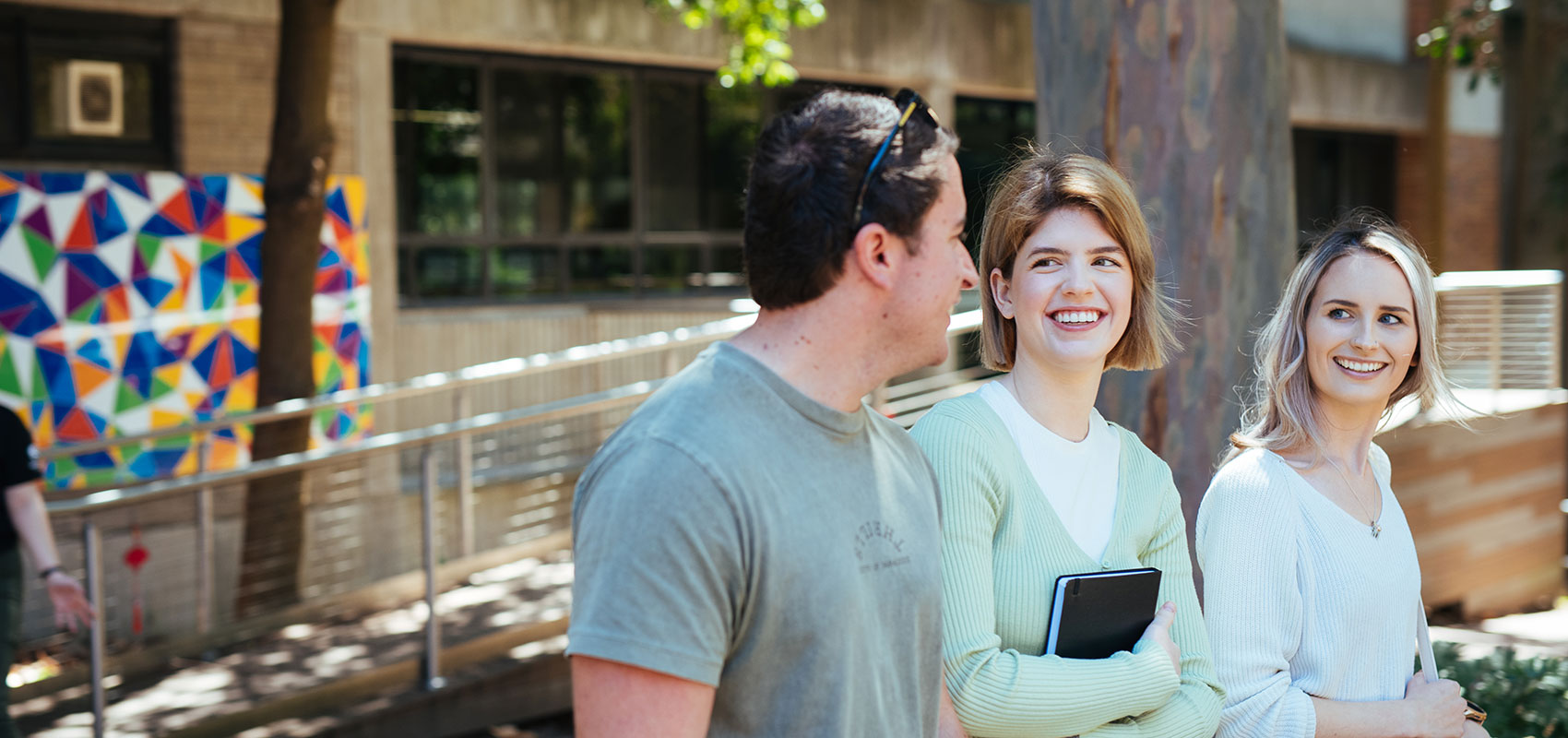
Foundation
What you will study
Open Foundation is not like high school. You choose the courses to suit you and your study area of choice.
There are lots of courses to choose from, however they do vary depending on the location and delivery mode of your studies. To successfully complete Open Foundation, you’re required to complete 40-60 units of courses. Each course is worth 10 units.
Subject areas
It is important to consider the degree you’d like to study once you complete Open Foundation as the courses you choose help to prepare you. You should explore the list of recommended courses to see what is suggested for the programs you are interested in.
There are many courses to choose from, however they do vary depending on the location and delivery mode.
View the program handbook to see the full list of available courses.
In-class time
University is not 9am-3.30pm Monday to Friday.
Your face-to-face time varies between each course and is made up of the following:
- Integrated Learning Sessions
Integrated Learning Sessions are 2 hour-long scheduled sessions. They give you a chance to explore what you are learning throughout the semester in a classroom setting. They are generally smaller classes so that you have the best chance to interact with your academics and ask questions. - Self-directed Learning
Online materials that allow you to learn at your own pace. They are developed and provided by passionate academics to supply you with the theory of your study area.
For online students who wish to have some face-to-face connection, non-mandatory sessions will be available to support students at a number of regional locations.
Your own study
At university, you’re in charge of your own learning, handing in your assignments and keeping on top of your work. To successfully complete Open Foundation you will need enough quality time in a quiet space to focus on your studies.
The amount of time you need to put in depends on the delivery method you have chosen. You’ll have to dedicate time to reading, preparing for classes, summarising, completing assessments, conducting independent research and preparing for examinations.
It’s important to think about how you will fit your own study into your life. You may find it a challenge at first, but you’ll get the hang of it in no time through commitment and organisation.

Assessments
It’s natural to feel a degree of anxiety, stress or apprehension about university assessments, they are a normal part of university life. We understand that everyone performs differently in different situations and have a range of assessment methods throughout each course to help you succeed.
What to expect in your Pathway
- Progressive Assessments
Held throughout the semester, progressive assessments can include tasks such as written reports, essays, oral presentations, in-class or online quizzes, class tests, lab reports, blogs, etc.
Ongoing assessments are a great tool to assess your learning and highlight where you may need revision or extra help prior to the formal exams.
What to expect in your degree
If you progress into an undergraduate degree, your assessments will be made up of both Progressive Assessments (detailed above) and Formal Exams.
- Exams
To successfully pass a course, you may have to complete a face-to-face or online exam at the end of the semester. Each exam could be worth up to 50% of your final mark for the semester and runs for 2 hours. You will be assessed on the content you have learned during the semester.
Not all courses have an exam.
Technology Required - Computers/Laptops/Tablets
To participate in your course and submit assessments, you will need access to a computer or an electronic device such as a tablet. This is required to log in to Canvas, the University’s learning management system. You do not need to own your own device.
Laptops are available for students to borrow from the University of Newcastle Library or from the Gosford campus, free of charge. Many local public libraries provide free access to computers.
If you’d like to buy a laptop, we recommend looking at the UNSA Laptops for Less program and checking if you’re eligible for financial assistance.
The University of Newcastle acknowledges the traditional custodians of the lands within our footprint areas: Awabakal, Darkinjung, Biripai, Worimi, Wonnarua, and Eora Nations. We also pay respect to the wisdom of our Elders past and present.